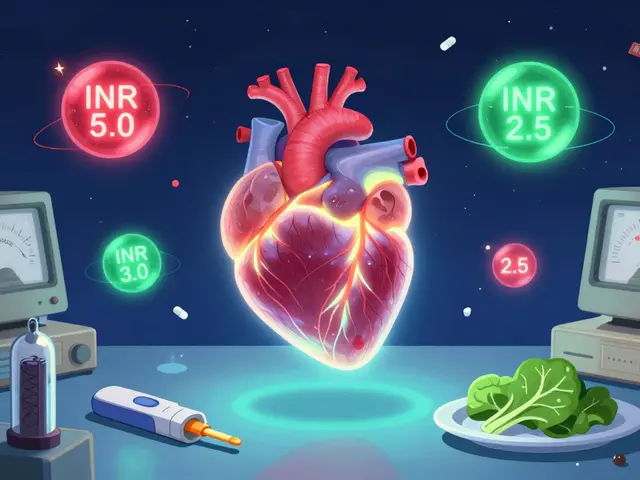Depakote (divalproex sodium) — practical guide for patients
Depakote is a brand name for divalproex sodium, a medication doctors use for epilepsy (seizures), bipolar mania, and migraine prevention. It works by calming overactive brain activity. If your doctor prescribed Depakote, this guide helps you understand how to take it, what to watch for, and when to get medical help.
How it’s used and typical dosing
Doctors tailor Depakote dose to the condition and your body weight. For seizures and bipolar mania, adults often start low and increase over days or weeks. Extended-release tablets are usually taken once daily with food; immediate-release tablets may be split into two or more doses. Your doctor will tell you the exact amount—never change the dose on your own.
Blood tests sometimes measure valproate levels to keep doses effective but safe. Don’t skip follow-up visits; dose changes and lab checks happen during the first few months.
Common side effects and serious warnings
Expect some mild side effects at first like nausea, drowsiness, dizziness, tremor, weight gain, or hair thinning. Most people adjust in a few weeks. Two rare but serious risks need attention: liver damage and pancreatitis. Signs include persistent stomach pain, yellowing skin or eyes, dark urine, extreme tiredness, or vomiting. Seek urgent care if these appear.
Depakote causes major birth defects and developmental problems if taken during pregnancy, especially in the first trimester. If you are pregnant, planning pregnancy, or could become pregnant, discuss alternatives with your doctor right away. Effective birth control is essential while taking Depakote.
Other important precautions: avoid sudden stopping of Depakote — that can trigger seizures. People with a history of liver disease, bleeding disorders, or mitochondrial disorders need special assessment before starting.
Depakote interacts with many medicines, including some other seizure drugs, blood thinners, and certain antibiotics. Tell your healthcare team about every prescription, over-the-counter drug, and supplement you take. Alcohol increases drowsiness and may raise liver risk; limit or avoid drinking while on Depakote.
Practical tips: take Depakote with food to reduce stomach upset, keep a pill calendar or app to track doses, and carry a list of your medicines. If you miss a single dose, take it when you remember unless it’s almost time for the next dose—then skip the missed one. Never double up without checking your doctor.
If you have new or worsening mood symptoms, suicidal thoughts, severe rash, jaundice, or unexplained bruising, contact your provider right away. For questions about cheaper options, generics, or getting a prescription filled safely online, ask your pharmacist or clinician for trusted resources.
Depakote can be very effective when used correctly. Work closely with your healthcare team, follow monitoring advice, and speak up about side effects so you get the benefit with the least risk.
 25 May 2025
25 May 2025
Depakote: Uses, Side Effects, and Essential Information for Patients
Depakote is a well-known medication used to treat epilepsy, bipolar disorder, and migraine prevention. This article walks you through what Depakote does, how it actually works, why your doctor might recommend it, and what potential side effects to watch out for. You'll also get tips for managing common issues and answers to questions many patients have. If you've ever wondered how this medication fits into daily life or what makes it different from others, you're in the right place.
Latest Posts
-

Mysimba vs Weight‑Loss Alternatives: Full 2025 Comparison
-

Monitoring Your INR: Understanding Blood Thinner Levels and Targets
-

The role of adapalene in treating acne on darker skin tones
-

10 Reasons Why Equol is the Must-Have Dietary Supplement for Optimal Wellness
-

Meniscus and ACL Injuries: Understanding Knee Pain and When Surgery Is Necessary

15